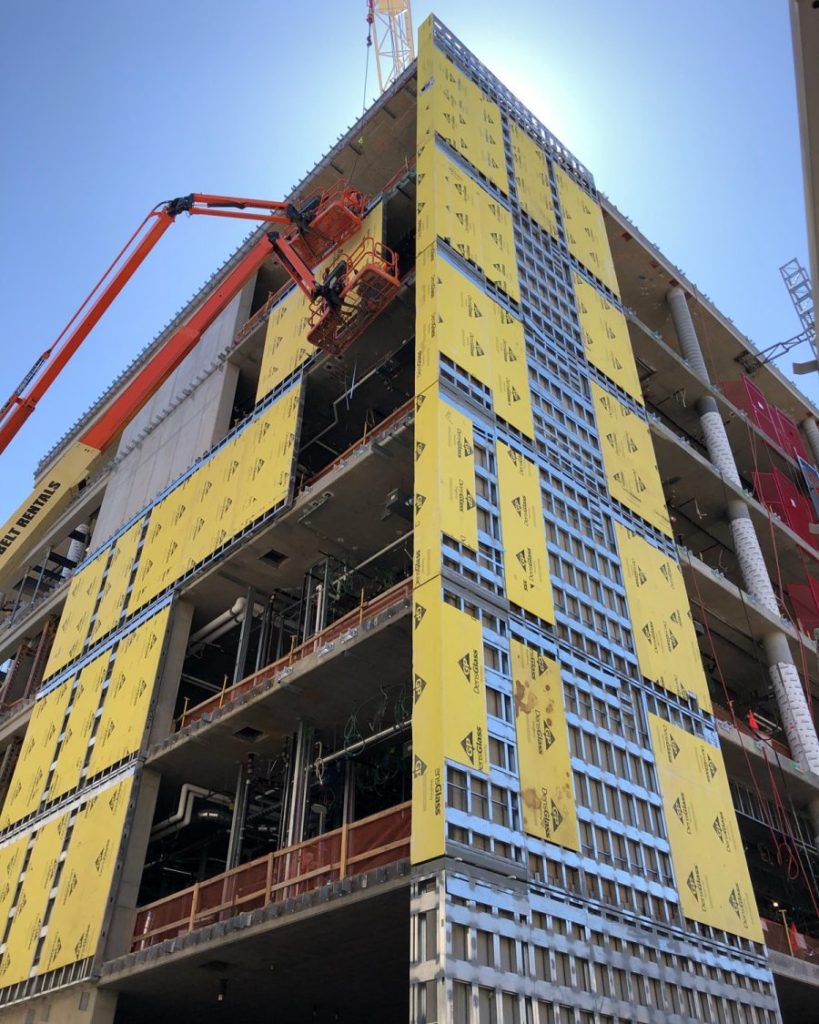
Share this Article     | If you’re in the construction industry, you know that modular construction is a solution that is growing quickly in popularity around the world. And for good reason. But before we dive into the benefits of modular construction, the most popular types of modular buildings, and some examples of companies that are doing it right, let’s get clear on what “modular construction” really means. What is Modular Construction? Modular construction is a method of construction, not a construction type. It is a process in which a building is constructed off-site using the same materials and standards as traditional construction methods but in controlled conditions, which results in faster production times and a whole host of other clear benefits that we’ll outline later. Traditional construction is marked by the transportation, preparation, and building of all the individual components of a building on the job site. Whether it’s measuring and cutting 2x4s, the installation of flooring and fixtures, or adding the final finishes, all tradespeople must work at the physical project location to complete the job. This makes the success and timeliness of the project heavily dependent on deliveries, weather, on-site labor, and other sometimes uncontrollable or unexpected factors. Alternatively, modular construction allows large portions of the project to be fabricated away from the job site, the assembly can be completed almost anywhere with logistics plans and transportation, and the final or nearly final product can then be shipped to the site for efficient completion. The Benefits of Modular ConstructionThere are five key benefits of modular construction:
Most of the construction work is done in a factory, and it is transported to the site by a logistics partner or transport company. Therefore, site work and foundational work can be done simultaneously onsite. This makes a project twice as efficient, resulting in time savings of 30-60% with a much faster ROI.
Modular construction is done in controlled settings that aren’t dependent on good weather. Rain or shine, workers are safe and comfortable inside and can produce quality work that is then shipped onsite. Oftentimes, modular products are already outfitted with flooring, cabinets, counters, fixtures, and appliances, thus further reducing onsite delays.
Staging and moving materials around a tight job site is difficult. Clutter, delays, and theft are just a few of the challenges that traditional construction sites face. These are virtually eliminated with modular construction and transportation. Complex storage logistics become a thing of the past and job sites are noticeably cleaner and safer.
Skilled construction labor can be hard to find in most places and can also be very expensive. With modular construction, skilled workers can stay in a fixed location. Strategically this makes the most sense for materials and logistics. Labor costs are also reduced due to the reduced time and labor needs onsite.
Traditional construction produces a substantially greater amount of waste than modular construction. Environmental concerns are growing. With those growing concerns, more companies are seeking greener solutions, thus making modular construction an attractive option. There are more benefits to offsite construction as a whole, some of which we didn’t dive into here. To learn more, check out our article on the Benefits of Offsite Construction. The Most Popular Types of Modular ConstructionThe most popular types of modular construction include schools, low-cost housing, hospitals, dorms, and hotels. These building types typically need to be constructed with a strict deadline, like before the school year starts, for example. Typically based in higher-density areas, hospitals, dorms, and hotels may have tighter job sites and thus require a logistics solution that doesn’t demand on-site storage. And with sound ordinances and traffic and transportation concerns, construction may also be restricted in such a way that makes the activities of traditional construction difficult. Modular Construction Done RightZ Modular can complete up to 90% of a module inside the factory and offer precision engineering and factory-installed facades. We’re particularly impressed with their Cheatham Street Flats that were built for Texas State University students and local professionals alike. Project Frog is a leader in developing scalable Industrialized Construction (IC) solutions using an integrated building system product and technology approach. Their modular, non-combustible solution is ideally suited for K-12 and higher education projects. It is also great for laboratories and kitchens. iMod Structures is revolutionizing the classroom and has re-architected the classroom from the ground up. Their modular solutions are DSA approved, prefabricated, and high-performance, and can be reconfigured and relocated easily, quickly, and cost-effectively. Modular construction is also finding its way into the residential space. BoxPrefab builds beautiful prefabricated homes that make good design more accessible and attainable. They are permanent, long-lasting, and energy-efficient — all important qualities that consumers wish to have for their home. Valiant Modular offers a modular restaurant solution. They work with independent owners and operators, as well as national chains and franchises. These franchisees realize the benefit of owning their own building rather than investing hundreds of thousands of dollars in leasehold improvements. Another great example of modular construction done right is mnm MOD. They create wood panels that are thoughtfully developed in reaction to the limitations and risks inherent in traditional wood framing. They are simpler to build with, durable, energy-efficient, and better for your health than traditional wood construction. With this new way of doing construction comes new logistical considerations, like the communication between on and off-site teams, special delivery sequencing, and considerations for freight trucks that may be wider and larger than traditional ones. Contact us today. Learn how the team at Stream Modular can make your next project a success by leveraging the benefits of modular construction. Stream Modular is a transportation logistics company specializing exclusively in modular construction. We help modular manufacturers and builders transport mods, pods and panels so they arrive on time and safely to the build site. |
| Have transport logistics questions about your next modular construction project? Book a call with our specialized modular team. | Get Expert Advice |